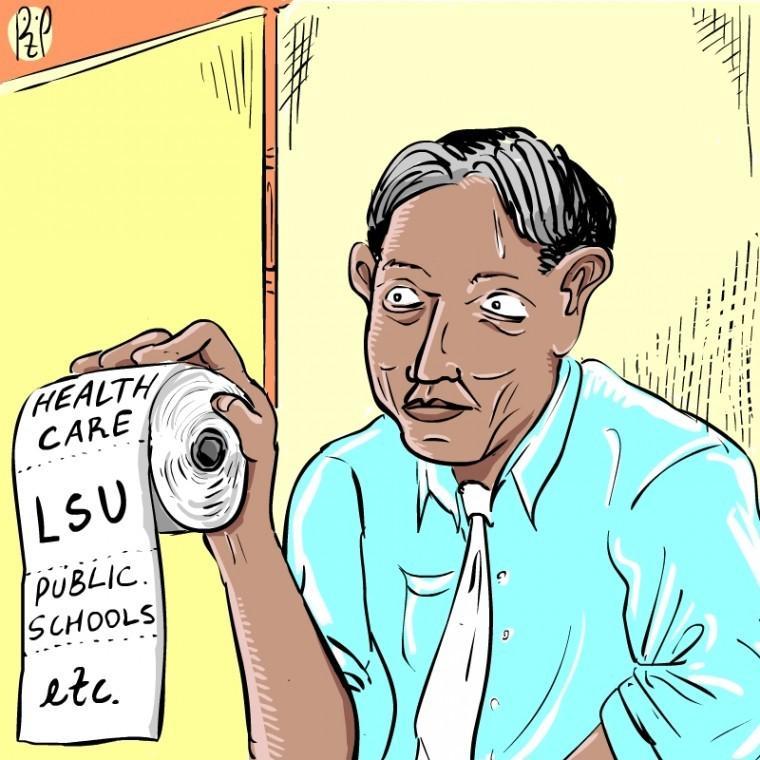It’s been a tough year in Louisiana — and a long while since you could look at some economic statistics and come away smiling.
That’s why I was surprised to see some good news about our dear state in a nationwide business survey.
So here’s the good news: Louisiana is routinely rated one of the best states in the country for businesses. We were ranked sixth in Area Development magazine’s “Top States for Doing Business” poll of business consultants, largely because of our low tax rates and large amount of tax credits for different industries.
It’s a good sign that, despite all appearances, our elected officials know what they’re doing. Gov. Bobby Jindal has said time after time he wants to make Louisiana a more inviting place to do business, and professionals around the nation seem to agree he’s doing a pretty good job.
But is that necessarily a good thing for Louisianans who don’t own their own business? Another study shows that Louisiana ranks among the highest states for largest income disparity between rich and poor.
Coincidentally, we rank sixth in that, too.
This inequality follows a trend in both the state and the nation as a whole that has been building for the past several decades, according to The Center on Budget and Policy Priorities. Between the late 1990s and the mid-2000s, the income of Louisiana’s poorest 20 percent of people did not grow at all, while the richest fifth’s income increased by 17 percent.
The telling thing about the CBPP’s report is that while the difference between Louisiana’s richest and middle fifths is even with the national average, the richest-to-poorest inequality is so high.
Relatively, our poor are poorer than nearly anyone else’s.
Of course, correlation does not imply causation. A good climate for building business does not mean the poor have to suffer. But when the state’s priority is to cut taxes that would pay for welfare and food stamps in order to attract business owners, you can’t really be surprised at the statistics.
Attracting more business to Louisiana is necessary for the state’s future, and Jindal and company have done a commendable job of it. Before the entire country fell into a recession, Louisiana was one of the fastest-growing state economies, and thanks to Jindal’s policies, we are moving steadily back toward the same growth.
Looking at the state’s future, there’s plenty to be optimistic about.
But is it worth sacrificing the well-being of our poorest citizens, some of the poorest in the country, for the promise of a bright and plentiful future?
State lawmakers need to reevaluate their priorities. While the poorest 20 percent of Louisianans wait for the new jobs and higher wages that new businesses should theoretically bring, they currently make about $16,900 yearly per household. That’s about the federal definition of poverty for a household of just two.
Lawmakers need to find solutions that help the poorest citizens while still allowing businesses to grow. It’s possible to expand the safety net without killing the features that make Louisiana so attractive to business owners. It’s just not easy.
To his credit, Jindal has proposed one possible solution and made it his top priority for 2013. He plans to simplify the state’s tax code by removing the numerous exemptions that businesses love and lowering the real tax rate.
While that will help everyone by making taxpaying a simpler process, there are more helpful changes that could be made. Lowering the sales tax rate, one of the highest in the nation, and increasing income tax would take some of the burden off the poor and have everyone pay more proportionately to their income.
We’ll have to wait and see how Jindal approaches the tax code, but Louisiana’s income inequality is too big of a problem to go unnoticed.
We elect our politicians to represent the entire state. Let’s hope that next year they keep that in mind.





